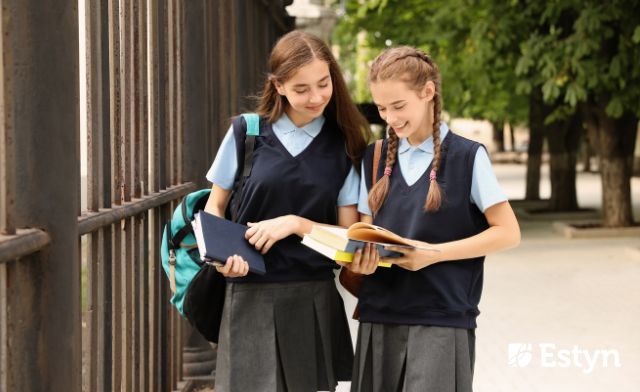Improvement Resource Type: Thematic Report

Executive summary
This report examines learner behaviour within further education (FE) colleges across Wales. It focuses on the factors that influence positive and negative behaviours, as well as the variations in behaviour across different learner groups and learning programmes. The report considers how colleges promote positive behaviours and manage negative behaviours, alongside the support and guidance available to both learners and staff. It highlights ongoing challenges such as the continued impact of the COVID-19 pandemic, along with the rise in social media misuse and vaping. We consider the environmental factors and institutional practices that influence these behaviours. Our findings are based on visits to seven colleges, national surveys of staff and learners, and consultations with key stakeholders, including union representatives. The report includes several spotlights of effective or interesting practice based on our visits.
During our visits, and from the surveys, we identified several recurring patterns and challenges within FE colleges. Many learners demonstrate positive behaviours, including respectful interactions with staff and peers, active engagement in lessons, and a commitment to maintaining clean and orderly campuses. These outcomes are supported by an environment that fosters independence and adopts an adult-oriented teaching approach, which plays a crucial role in shaping such constructive behaviour. However, negative behaviours are also prevalent. Lateness, absenteeism, inappropriate use of social media, and vaping are commonly reported issues. More concerning behaviours, although less frequent, include incidents of sexual harassment, substance misuse, and peer violence. Staff note that serious incidents often arise from external pressures or unresolved personal challenges affecting learners.
The lasting effects of the pandemic continue to shape learner behaviour. Many young people exhibit developmental delays, particularly in social skills and resilience. Although the immediate impacts of the pandemic have lessened in the past year, the residual challenges are evident in learners’ engagement and their capacity to cope with academic pressures.
Behavioural patterns vary across different learner demographics and college programmes. Younger learners, including those on 14-16 programmes as well as recent school-leavers, and those enrolled in lower-level courses often exhibit more frequent behavioural disruptions. Neurodivergent learners face unique challenges, such as difficulties with emotional regulation and peer interactions. Learners from marginalised groups, including LGBTQ+ students, are disproportionately vulnerable to bullying and harassment, as their identities are sometimes negatively perceived by peers. Male learners, particularly those on vocational trade courses like construction, are more likely to display negative behaviours. These include the use of inappropriate language towards female learners, often driven by an effort to fit in or assert dominance in predominantly male environments.
Colleges generally provide professional learning opportunities in behaviour management and trauma-informed practices, offering staff strategies to support learners with behavioural challenges. However, some staff report feeling overwhelmed when dealing with these issues on a regular basis, which can affect their ability to manage behaviour effectively.
Colleges are at varying stages in embedding behaviour management practices. Some institutions have established effective systems with clear frameworks to promote positive behaviour and address challenges, while others are in the early stages of development and face issues with consistency and resource allocation. The stability and sustainability of behaviour management practices are further complicated by funding challenges. Colleges often rely on short-term funding streams, which hinder their ability to implement long-term support structures or retain skilled staff. This financial uncertainty undermines efforts to establish a consistent and sustained approach to managing learner behaviour, with implications for both the effectiveness of interventions and staff well-being.




